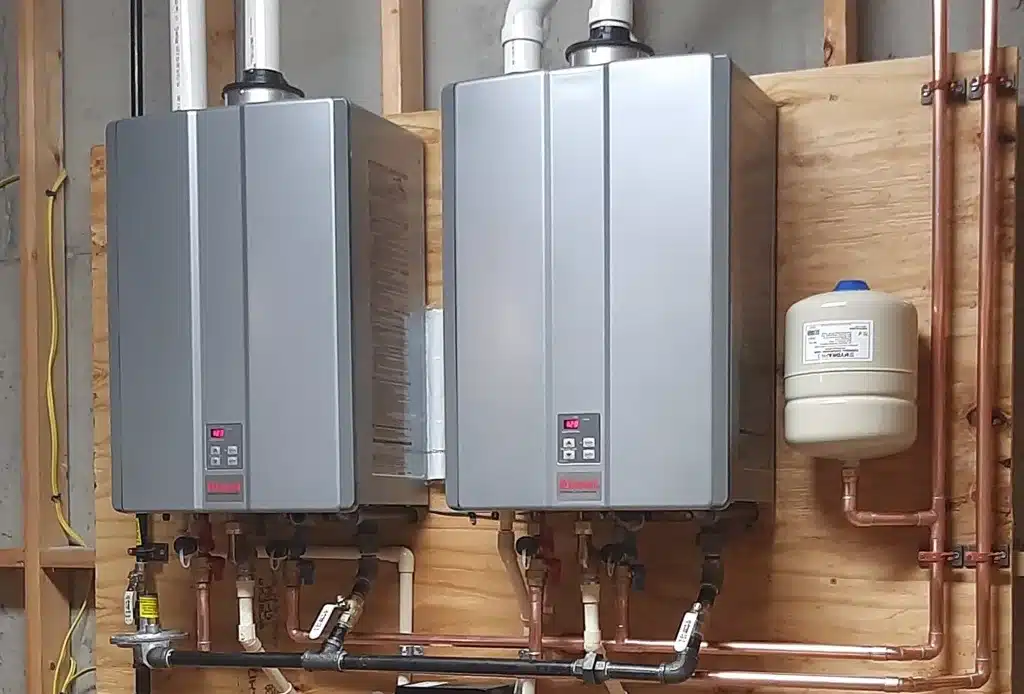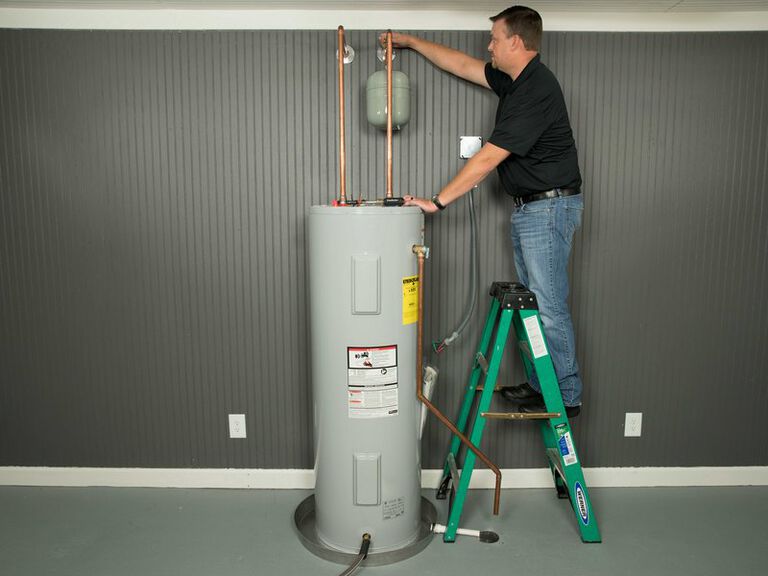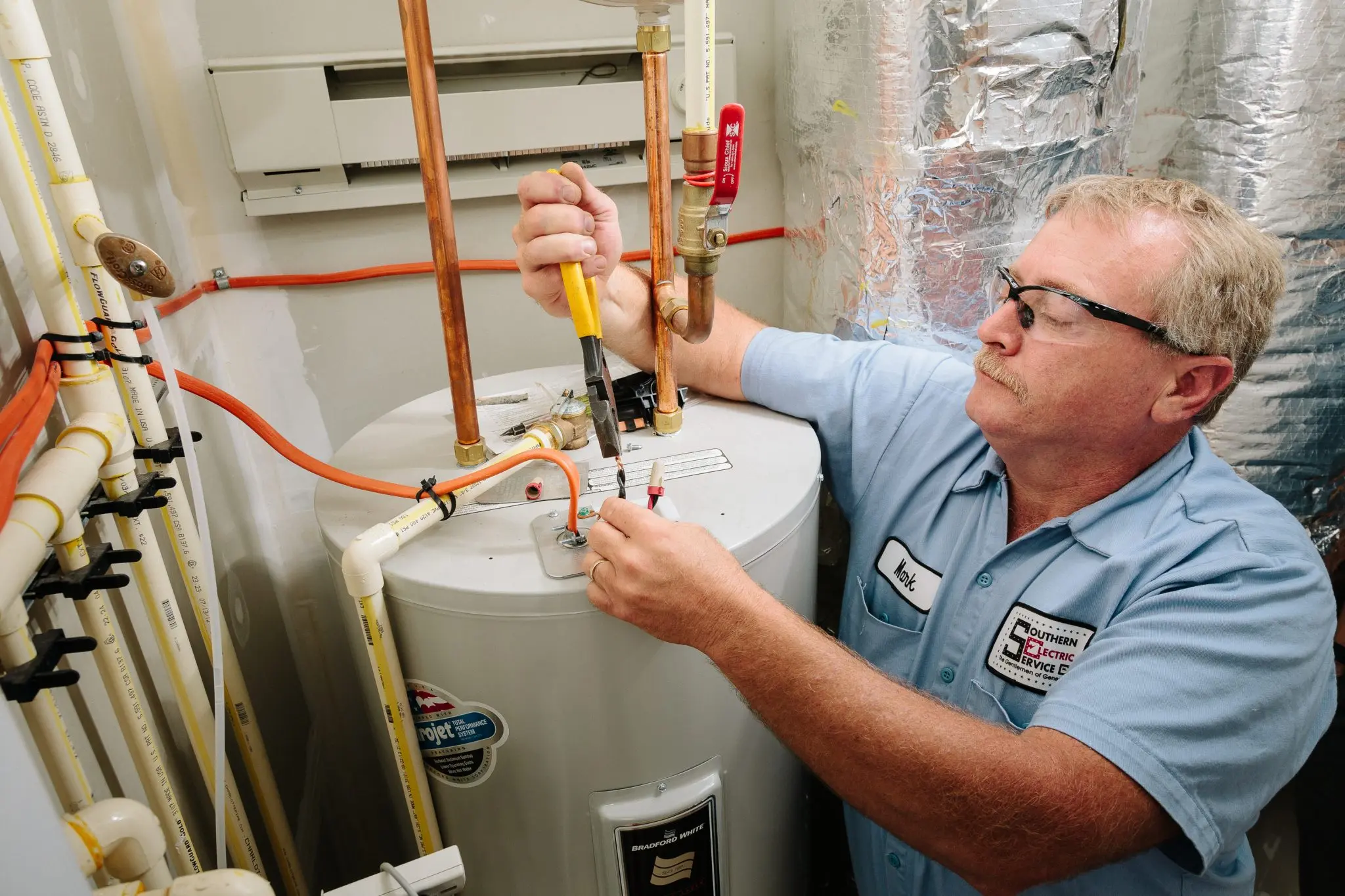Experienced Plumber Denton Offering 24/7 Plumbing Services
Experienced Plumber Denton Offering 24/7 Plumbing Services
Blog Article
Complete Overview to Water HeaterSetup and Substitute
Comprehending the complexities of hot water heater installment and replacement is important for house owners looking for to make sure effectiveness and reliability in their warm water supply. From selecting the ideal kind and size to carrying out a seamless installation process, a number of elements should be thought about to stay clear of typical risks. This guide will give you with the essential actions and insights to navigate the intricacies of this home improvement job, while likewise stressing crucial maintenance methods that can extend the life of your system. As you discover these facets, you might find yourself reassessing your present setup and recognizing areas for renovation.
Kinds Of Water Heating Systems
When considering water heating system setup and replacement, it is vital to understand the various sorts of water heating systems offered in the marketplace. The most usual kinds include container hot water heater, tankless hot water heater, warm pump water heating units, and solar water heaters.
Storage tank water heating systems are conventional systems that keep a details volume of warm water, making them easily available when required. In comparison, tankless water heating systems provide hot water on demand, removing the demand for storage space.
Heat pump water heating systems utilize electrical power to transfer warm from the air or ground to warmth water, offering considerable energy cost savings yet calling for more space and specific installation conditions. Finally, solar water heaters harness solar energy to heat water, offering a green choice with prospective long-lasting expense financial savings, although they typically call for a back-up system for over cast days.
Comprehending these options ensures notified choices concerning installation and replacement, catering to certain needs and preferences.
Selecting the Right Dimension
Choosing the proper size for a water heating unit is critical to guarantee optimal performance and performance. A system that is as well small will certainly struggle to satisfy household needs, bring about irregular warm water availability and raised energy intake. Conversely, an extra-large water heater can result in unnecessary energy waste and greater utility expenses.
To establish the best dimension, consider the home's peak warm water usage. This can be calculated based on the number of owners and their typical warm water needs. As an example, a family members of four may call for a hot water heater with a capacity of 50 to 80 gallons, depending upon the usage patterns, such as simultaneous showers and washing.
Furthermore, assess the recuperation rate, which gauges how swiftly a heater can restore warm water after it has been utilized. For tankless versions, concentrate on the flow rate, measured in gallons per minute (GPM), to guarantee it fulfills the household's synchronised need.

Installation Refine Review

Next, the old unit must be separated and gotten rid of, making sure to follow neighborhood codes and policies regarding disposal. As soon as the old unit is out, the brand-new water heating unit can be positioned in area. This step includes attaching the supply of water lines, making certain that all fittings are leak-free and protected.
After establishing water connections, it's necessary to attach the power supply, whether electric or gas, complying with the manufacturer's instructions thoroughly. Once all links are made, the system must be filled with water, and the power can be transformed back on. It's crucial to inspect for leaks and make sure the water heater is working appropriately before finishing the setup process.
Common Setup Mistakes

One more frequent blunder is neglecting to adhere to neighborhood codes and laws. Falling short to stick to these requirements can not just lead to safety dangers however may additionally result in costly penalties or the need for image source pricey reinstallation.
Incorrect plumbing connections are additionally a prevalent error. Falling short to protect links or utilizing the incorrect kind of installations can cause leakages and water damages. Forgeting the significance of an appropriate drain pan can result in significant water damage if leakages do take place. Finally, insufficient insulation of pipes can result in warm loss, reducing performance. By preventing these typical setup blunders, the original source property owners can guarantee their water heater runs securely and effectively, taking full advantage of efficiency and durability.
Maintenance Tips for Durability
Appropriate upkeep of a hot water heater is important for its long life and ideal performance. Regular inspections and maintenance can protect against pricey repairs and prolong the home appliance's life expectancy. Begin by checking the temperature level setting; it should usually be set between 120 ° F and 140 ° F for ideal power efficiency and safety.
Every 6 months, flush the tank to eliminate debris buildup, which can hinder heating efficiency and create deterioration. To do this, switch off the heating system, link a hose to the drainpipe valve, and allow the water run until it is clear.
When they are worn away,Anode poles must be checked yearly and replaced. These rods help prevent container deterioration by bring in harsh components in the water.
In addition, check the stress alleviation shutoff regularly to guarantee it is operating properly. This valve is essential for protecting against too much pressure build-up within the container.
Last but not least, consider scheduling a specialist maintenance check every few years for extensive examinations and servicing. By adhering to these upkeep pointers, house owners can substantially boost the effectiveness, safety and security, and life expectancy of their water heaters, making sure reliable warm water for many years ahead.
Conclusion
In conclusion, correct setup and maintenance of hot water heater are important for guaranteeing efficiency and long life (drain next page cleaning). Selecting the proper type and size, sticking to installment standards, and preventing common mistakes considerably add to optimal performance. Regular upkeep checks and expert maintenance assistance receive functionality and prevent expensive repair work. By comprehending these necessary aspects, homeowners can achieve a reliable warm water supply while minimizing potential concerns connected to hot water heater operation.
Understanding the ins and outs of water heater installment and substitute is crucial for house owners seeking to guarantee effectiveness and integrity in their hot water supply.Storage tank water heaters are standard systems that store a certain volume of hot water, making them conveniently offered when required. In contrast, tankless water heaters supply warm water on need, getting rid of the need for storage. Picking a water heating system that is either too small or too big can lead to ineffectiveness, resulting in insufficient hot water supply or too much power intake.
By understanding these important aspects, home owners can attain a reliable warm water supply while lessening potential concerns related to water heater operation. plumber Denton.
Report this page